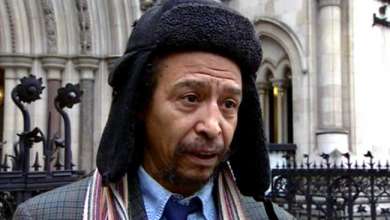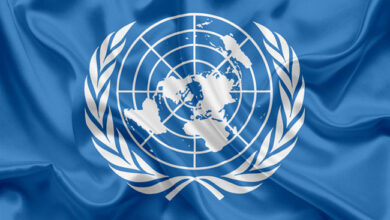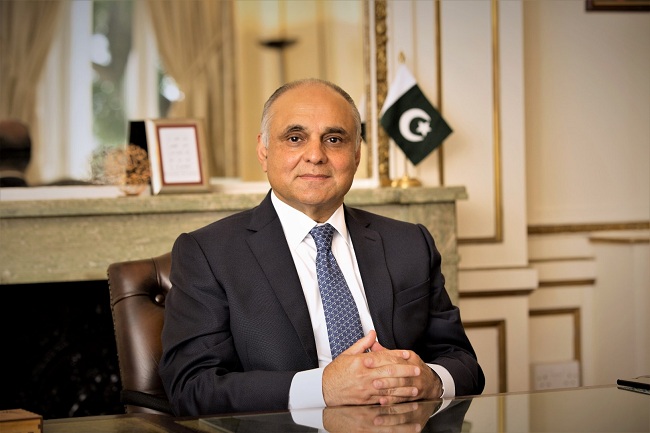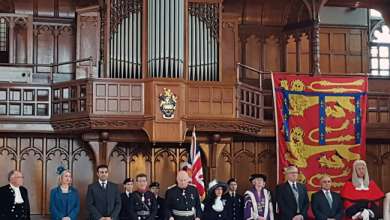Interior Minister Ahsan Iqbal participates in Panel Discussion
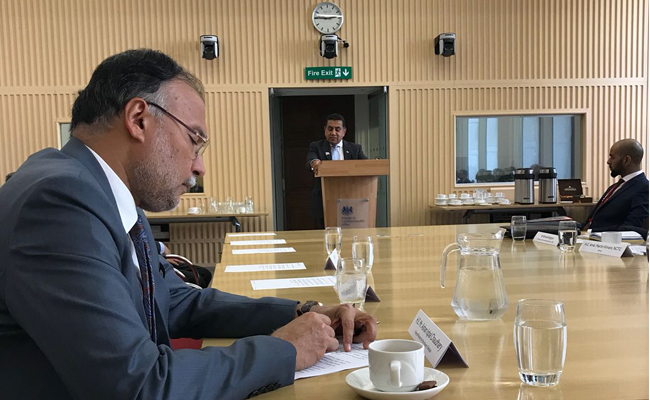
Interior Minister Ahsan Iqbal participates in Panel Discussion on Countering Violent Extremism
Federal Minister for Interior Mr. Ahsan Iqbal addressed a Panel Discussion on Countering Violent Extremism (CVE) at the Foreign & Commonwealth Office in London, UK, on the side-lines of the Commonwealth Heads of Government Meeting (CHOGM) 2018.
Besides Lord Ahmad of Wimbledon, (UK Minister of State for the Commonwealth, and Minister Iqbal, other speakers included the Kenyan Head of National Counter Terrorism Centre, Amb. Dr. Martin Kimani; the Nigerian Coordinator Counter Terrorism Centre, Rear Admiral Yaminu Musa; the Minister in the Office of the Prime Minister of Trinidad & Tobago, Hon. Stuart Richard Young MP; and Mr. Mark Albon, the Head of the CVE Unit in the Commonwealth Secretary General’s Office. The audience included young representatives from different forums.
The proceedings included the introduction of the Commonwealth P/CVE Programme to Member Countries, the announcement of the CVE Cadre of Experts, and statements/ presentations on UK’s approach to CVE as well as successes achieved by Pakistan, Nigeria, Kenya, and Trinidad & Tobago in addressing violent extremism, followed by an interactive Q & A Session from the audience.
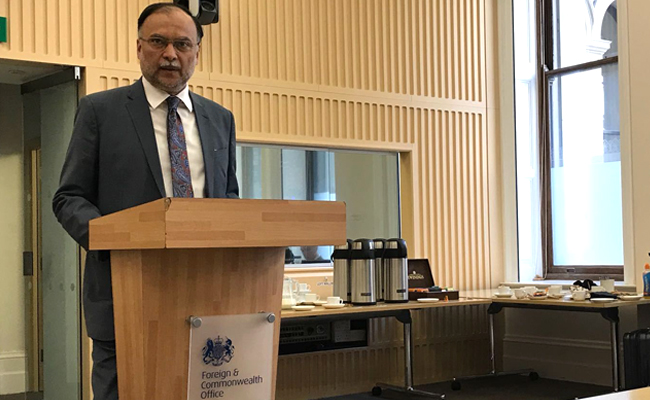
While affirming Pakistan’s support for the cause, Minister Iqbal observed that at a time when global challenges like climate change, terrorism & extremism, and inequalities were staring us in the face in an ever-connected world, global politics had become fractured and dysfunctional, and that there was a need for collaborative and accommodative efforts, rather than finger pointing. He stressed that any effective policy to counter violent extremism would require a comprehensive approach based on an objective and considerate understanding of both internal and external root causes of the rising extremism in the world, including unresolved international disputes, negative and stereotyping media campaigns against communities, religions and nations.
He pointed out it was the prejudice and a sense of injustice and hopelessness that, coupled with lack of engagement & understanding and lack of peaceful alternatives, were driving impressionable individuals into the folds of violent extremism & terrorism. Extremism and terrorism can never be defeated unless there is an understanding of why and how it spreads, he stressed.
Briefing the participants about Pakistan’s journey from being the victim of terror & extremism to a victor over these menaces, Minister Iqbal highlighted the commitment and sacrifices of Pakistani nation in fight against terrorism. He said I am proud to stand as part of Pakistani nation, which should unshakable courage and determination in defeating the terrorists. Pakistan is facing legacy of Soviet war in Afghanistan alone. The western countries walked away after Soviet withdrawal leaving behind burden of millions of refugees, drugs and kalashnikovs. Pakistan has faced these challenges single handedly and in the process paid a big price. We don’t need assistance we need understanding from western countries, he added. Minister Iqbal highlighted strategic, legislative and tactical measures, the Government had taken in the last four years to push back and neutralize terrorist organizations.
Speaking of measures undertaken by Pakistan, Minister Iqbal briefed the participants about the National Action Plan (NAP) and the practical steps taken by the Government to counter terrorist/ violent extremist elements, including: curbing activities of proscribed organizations through operations against militants in settled and tribal areas by destroying their infrastructure, training facilities and networks; complete ban on glorification of terrorists and terrorism on Media (print, electronic and social); Steps against religious persecution; Relentless Intelligence Based Operations (IBOs) against sympathizers and supporters of extremism; crackdown against hate speeches and material through NACTA “Chaukas” App; Crack down on finances of proscribed organizations and freezing of their accounts; PTA’s closure of websites of all proscribed organizations; registration of cases against people involved in disseminating messages of hatred and violence; and monitoring of proscribed individuals/ groups, and travel ban on them.
On the narrative side, he said the Government through its National Counter Extremism Policy Guidelines (NCEPG) has devised formulated a comprehensive policy which looks beyond narrow concept of security, and includes aspects related to: Rule of law and service delivery (Criminal Justice System); Citizen & Youth Engagement; Media Engagement; Coordinating responses beyond silos (Apex Committees); Community Policing; Integrated Education Reform; Reformation, Rehabilitation, Reintegration, and Renunciation; Promotion of Culture & Arts; and finally, Recognizing Regional & Global Context.
At the end, he reiterated that Pakistan had already geared up for a grand strategy for preventing and countering violent extremism to defeat forces of hatred and violence. The founder of nation, Mr Jinnah gave us a clear vision for an inclusive and harmonious society. We want to give our next generation peace and stability for economic development. Pakistan would be happy to share its experiences of success as well as learn from others.
In the Q & A Session that followed, the participants of the event showed a great understanding and appreciation of Pakistan’s efforts and sacrifices in its successful fight against terrorism & extremism.

